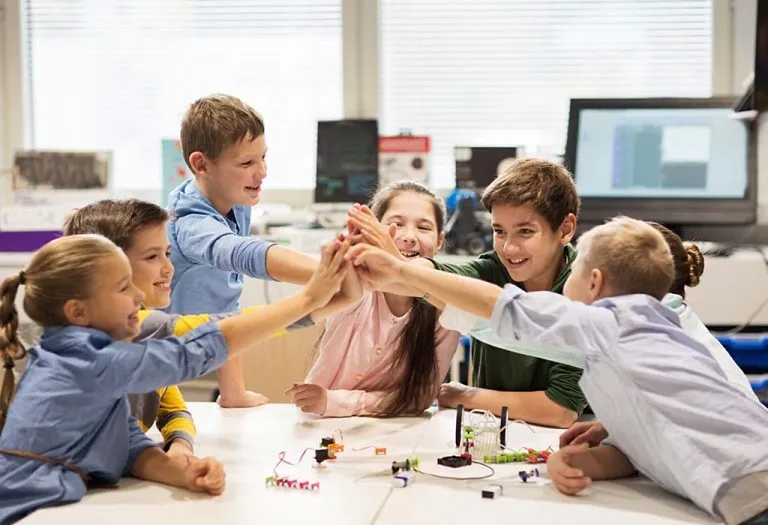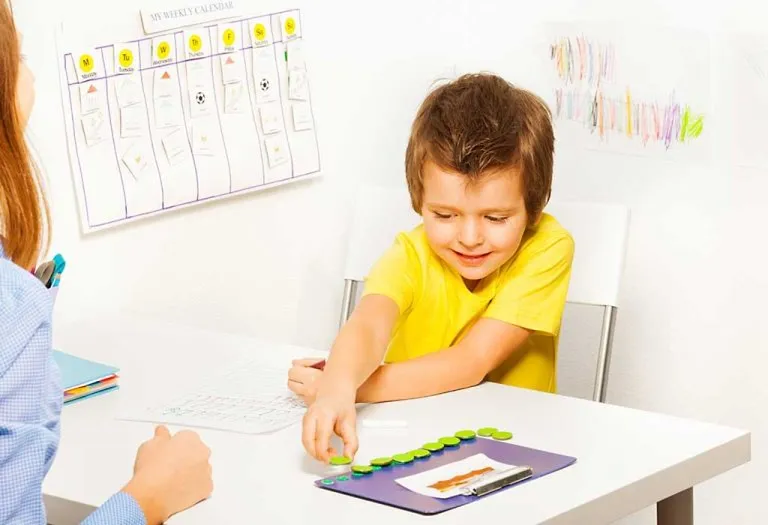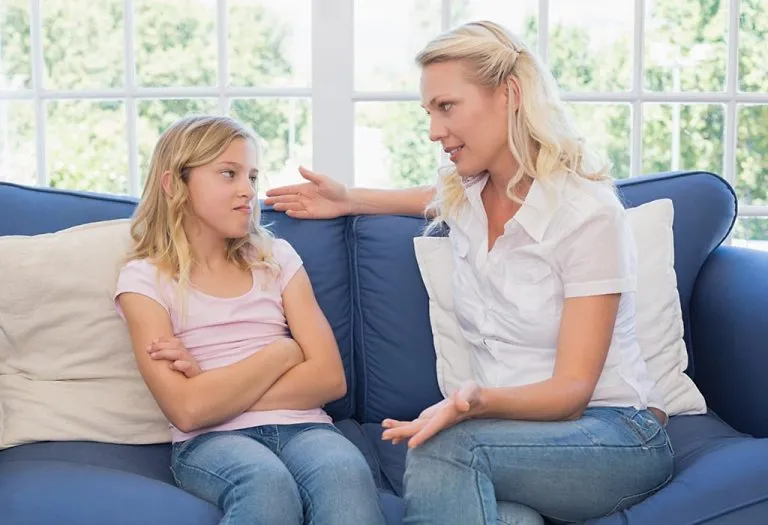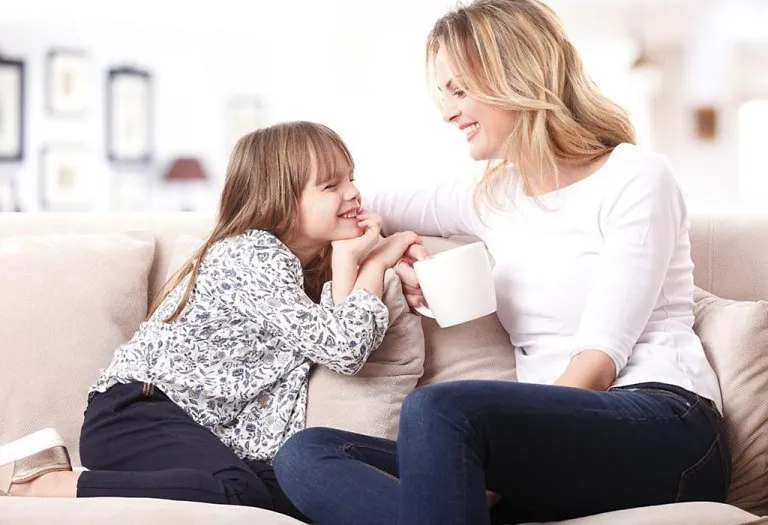Positive Parenting – Benefits and Techniques to Follow
Parenting does not always mean pampering and loving the kids all the time; it involves using a firm tone and technique whenever necessary. If you are a parent or a guardian of young kids, then you can understand this statement better. But is it always necessary to raise your voice or impose an opinion on your child for trivial issues? Or can there be more effective techniques of handling your little one without actually getting upset or even hurting their feelings? Read on this post, to find out all about positive parenting, which will help you understand your child better and handle the situation in a practical manner!
What Is Positive Parenting?
The term positive parenting has become increasingly common these days! But what exactly does it mean? And most importantly, how do we adopt it?
On a first glance, positive parenting looks like all good and positive without any reaction towards the bad behaviour of your kid. However, on the contrary, positive parenting does not mean that you cannot reprimand when your kid behaves badly. Positive parenting does not merely mean being nice to your children even when they don’t deserve it. Positive parenting is a philosophy and strategic method which is based on the principle that as parents, our relationship with our kids is the most important thing, and how we can help develop their self-confidence. Positive parenting focuses on discipline and raising the kids to become a self-reliant and responsible individual who treats others with compassion, respect and gratitude.
What Is the Best Age to Start Positive Parenting Your Child?
Well, practising positive parenting essential guide right from the beginning is highly recommended. The best age to start the approach of positive parenting begins right at the infant level. Research indicates that children below one year are highly benefited with a positive parenting approach. A positive parenting approach results in a secure parent-child relationship. A secure attachment between parents and children is related to positive developmental outcomes like self-esteem, trust, self-competence, etc. Hence it can be said without a preamble that positive parenting should begin as early as possible.
Examples of Positive Parenting
Positive parenting focuses on nurturing and guiding children with empathy, encouragement, and constructive discipline. Here are some effective examples of positive parenting practices:
1. Handling a Tantrum in a Public Place
Your child begins to have a tantrum at the grocery store because they want a candy bar. Instead of reacting with frustration, you calmly get down to their eye level and acknowledge their feelings: “I can see that you’re really upset because you want the candy.” You let them know you understand but remind them of the rules about snacks. Afterwards, you redirect them by involving them in the shopping, like choosing a new fruit, helping them feel empowered and distracted from the tantrum.
2. Encouraging Independence During Homework
Your child is struggling with homework and wants you to give them all the answers. Rather than solving it for them, you encourage them by saying, “I believe you can figure this out! Let’s break it down step-by-step.” You ask guiding questions to lead them to the solution, reinforcing their ability to problem-solve while also showing your support. This approach helps build their confidence and resilience.
3. Teaching Responsibility with Chores
Your child forgets to feed the family pet, a responsibility they agreed to take on. Instead of scolding, you gently remind them, “Remember, Buddy depends on you for his meals. How can you make sure you remember tomorrow?” Together, you brainstorm ideas like setting a reminder. By focusing on solutions rather than punishment, you teach accountability while also respecting their feelings.
4. Supporting Social Skills in a Group Setting
At a birthday party, your child doesn’t want to share their toys with other children. Instead of forcing them to share, you pull them aside and discuss how sharing can help others have fun, too. You ask how they would feel if someone shared a favourite toy with them, helping them see things from another perspective. This gentle approach encourages empathy and builds social skills in a positive, patient way.
Benefits of Positive Parenting
The importance of positive parenting can be highlighted by the following benefits associated with the power of a positive parenting approach:
1. Stronger bonding between parents and children
It is very important to develop a strong bond between parents and children, and positive parenting helps you with that. This approach, with the help of behavioural development techniques, helps increase the trust between parents and children. This is because the children will have positive conversations more frequently with their parents as a result of positive parenting. These positive affirmations, along with an optimistic outlook attribute towards a stronger relationship. Strong bonding with your kids will give them the confidence to readily come to you with their problems and any questions they have as they grow older. Especially when your kids come to their middle school or high school, they will encounter more events and complex social-life problems and most kids are a little reluctant to share their experiences with their parents. However, a positive parenting approach will encourage the kids to involve you in this phase, too.
2. Better and more effective flow of communication
The importance of communication is known to all of us in every aspect of our lives. Communication is an inevitable aspect of a positive parenting approach. The main principle of the positive parenting approach is to encourage a positive and pleasant conversation with your kids as against harsh and negative way. This can be done by encouraging the kids to have an open talk about their thoughts, beliefs and feelings and also guiding them on how good behaviour choices can spread good feelings and happiness. Effective communication works best when it is a two-way process. So, it is highly recommended that you also share your experiences and feelings with your children on a regular basis. Listening is as important as speaking! Make sure that you are patient enough to listen to all the stuff your kids have to say.
3. Higher self-esteem and happiness
Positive actions, mutual trust, and effective communication will definitely result in a happy environment at home and thereby boost the self-esteem of your kids. As a parent being less punitive and focusing more on encouragement and improvement will help children get a positive approach in life. It holds true not just for kids but for adults too, as we see mistakes and imperfections as an opportunity to improve instead of getting into self-consumed guilt and negativity. Then, it helps us to develop positive behaviour. A happy and pleasant environment at home means less stress for both parents and kids!
4. Sets a positive example for kids
Setting up an inspiring and good role model for your kids is extremely important and quite challenging! Young kids learn to behave by looking at the examples set by their parents. Often, abusive and bullying parents will either have disturbed kids or kids who grow up to become as abusive as their parents. In contrast, kids with parents who have a gentle approach towards most complicated issues will have a similar mild and friendly approach towards life. For instance, if you have a habit of spanking your kid if she does something that you have asked her not to do, then she will also have an instinct to hit other kids in school if they do something similar.
5. Reduces negative behaviour
One of the biggest nightmares parents have is of their kids having a streak of negative behaviour in them! Parenting often becomes a struggle with young teens who try to get away with their irrational behaviour while avoiding punishments. It is very important to understand that as parents, you still need to set control limits for your kids. The only difference is that positive parenting encourages you to adopt positive alternatives to negative actions.
6. Enhances mutual respect
Along with a positive outlook and open communication, another important aspect of positive parenting is developing mutual trust between parents and kids. Rules are extremely important for kids, but you need to make them understand why those rules are made instead of just stating that they are supposed to follow your orders. For instance, you have made it clear to the kids that they are not supposed to go out without taking your permission. Now, you need to tell them that it is for their safety that you need to know their whereabouts at all times so that in case they are in trouble you can come to their aid and keep them safe!
7. Encourages Emotional Regulation
Positive parenting helps children learn how to manage and understand their emotions. By responding with empathy and calm guidance during challenging moments, parents model effective emotional regulation. This approach teaches children to handle their own emotions constructively, reducing the likelihood of outbursts and promoting resilience.
8. Fosters Independence and Responsibility
Through positive parenting, children are encouraged to make decisions within set boundaries, helping them develop a sense of autonomy. When parents guide rather than control, children learn to take ownership of their choices and actions. This sense of independence prepares them to handle responsibilities and make thoughtful decisions as they grow older.
Best Positive Parenting Techniques to Follow
Here, we have some useful tips for positive parenting that you can adopt:
1. Exercise a just and firm positive parenting discipline at home
Being kind and respectful to others can set perfect examples for your kids to follow. As we all know, children learn by mimicking their parents. It also helps to maintain a calm and serene atmosphere at home, which will help your child to keep calm and be receptive to logic even at times of difficult situations.
2. Try to be creative and non-punitive
It is inevitable that your kids will, at times, throw tantrums or misbehave intentionally. During those times, it is highly recommended that instead of imposing punishments, you can be more creative with the impositions you can give them. A creative and non-punitive approach encourages even the most difficult children to learn new behaviour.
3. Handle the situation with patience
Positive parenting is a gradual and long term discipline that will not give you a result overnight. You need to be patient enough with your kids if you wish to see any real change in them. Repeated practices, patience and positive discipline will prove to be very rewarding and beneficial in the long run.
4. Understand the age-related behavioural pattern
There is a huge difference in the parenting principles for toddlers and teens! Brain development and age-related behavioural pattern in kids is something that as parents, you need to understand and act accordingly. For children below three logical reasoning and sound judgement may not work, but for older kids, you can adopt inductive discipline by giving them choices.
5. Set clear and consistent limits
As parents, you need to set clear rules and limits that have to be followed. Explaining the consequences of violating those limits is also important. You also need to see to it that the rules are consistent and followed through at all times.
6. Take time out to gather your thoughts
There will be moments when you’ll be totally exhausted and angered by your kid’s behaviour. At this time, it is recommended to take some time out cool down gather your thoughts and get back to your kids with an open mind. When your mind is disturbed and angry, you’ll simply blow up the conversation, and it may lead to more damage than good. Regular meditation also helps promote mindful parenting techniques.
7. Take time to understand the reason behind an action
It’s true that children often misbehave, but there is always a reason behind why they misbehave, even if it’s a petty thing. For children, it’s important enough that’s why they misbehave. If you make it a point to address this cause directly, then the child will feel acknowledged and understood instead of getting upset.
8. Give them a learning opportunity
This is more effective in the case of older kids when they are old enough to listen to reason. For instance, the consequence of breaking a toy is that she won’t be able to play with that toy anymore. Also, encourage them to speak about why they are angry. This will help develop their communication skill and completely let out their anger instead of keeping it in their mind for a considerable amount of time.
9. Avoid taunting and shaming
Consider this statement ‘You are a 7-year-old when are you going to grow up? Stop behaving like a baby!’ Such lines have negativity attached to it that also causes a shaming effect in children and negatively impacts their self-esteem. Instead, talk it out with kids let them know that it’s not an appropriate behaviour without shaming or taunting them.
10. Practice positive parenting for the personal development of the child
As parents, we often tend to comment and correct the kids for their negative behaviour, but at the same time, you also need to appreciate and acknowledge if they do something beautiful. Ensure that your child gets more attention for her good behaviour than her bad ones. This will encourage her to do more of the good work and maintain a positive self-identity.
11. Model Problem-Solving Skills
Children learn a lot by observing how their parents handle challenging situations. Demonstrate constructive problem-solving by staying calm, discussing possible solutions, and making decisions with confidence. When children see you navigate difficult moments positively, they learn how to manage their own problems effectively, fostering resilience and adaptability.
12. Encourage Independence with Guidance
Supporting your child’s independence is a crucial part of positive parenting. Offer choices within set boundaries to empower them to make decisions, whether it’s selecting their outfit or planning a small activity. This approach helps them develop confidence, responsibility, and decision-making skills while ensuring they feel supported and safe in their choices.
FAQs
1. Can positive parenting be effective with teenagers?
Yes, positive parenting can be highly effective with teenagers, although it may require adjustments compared to younger children. With teens, it’s important to balance empathy and boundaries. Positive parenting techniques, such as open communication, active listening, and respect for autonomy, help teens feel understood and valued. This approach encourages them to be more open with their parents and fosters mutual respect, making it easier to guide them through the challenges of adolescence.
2. How does positive parenting impact a child’s academic performance?
Positive parenting can positively impact a child’s academic performance by creating a supportive and encouraging environment at home. When children feel secure, understood, and valued, they’re more likely to take on challenges, including academic ones, with confidence. Positive parenting also promotes problem-solving skills, emotional regulation, and self-discipline, which contribute to better focus, resilience, and motivation in school.
This was all about a positive parenting style. Having an open, friendly and peaceful relationship with your kids can give you a sense of fulfilment and contentment! Positive parenting tips are essential for healthy child development and also help you tackle behavioural issues with kids at different stages of their lives!
References/Resources:
1. The power of positive parenting; UC Davis Health; https://health.ucdavis.edu/children/patient-education/Positive-Parenting
2. Neppl. T, Jeon. S, Diggs. O, Donnellan. M; Positive Parenting, Effortful Control, and Developmental Outcomes across Early Childhood (Developmental Psychology); National Library of Medicine; https://pmc.ncbi.nlm.nih.gov/articles/PMC7041851/; March 2020
3. All about positive parenting; UNICEF; https://www.unicef.org/india/stories/all-about-positive-parenting
4. Positive Parenting; NIH; https://newsinhealth.nih.gov/2017/09/positive-parenting; September 2017
5. Li. M, Lan. R, Ma. P, Gong. H; The effect of positive parenting on adolescent life satisfaction: the mediating role of parent-adolescent attachment (Frontiers in Psychology); Frontiers; https://www.frontiersin.org/journals/psychology/articles/10.3389/fpsyg.2023.1183546/full; July 2023
6. What is positive parenting and how is it done?; NCT; https://www.nct.org.uk/information/life-parent/support-change/what-positive-parenting-and-how-it-done
7. Prime. H, Andrews. K, Markwell. A, Gonzalez. A, et al.; Positive Parenting and Early Childhood Cognition: A Systematic Review and Meta-Analysis of Randomized Controlled Trials; Springer Nature Link; https://link.springer.com/article/10.1007/s10567-022-00423-2; February 2023
Also Read:
Gentle Parenting
Parents Role in Child Development
Overprotective Parenting for Your Children
Best Ways to Improve Your Parenting Skills
Positive Discipline Techniques That Work Well for Kids
Was This Article Helpful?
Parenting is a huge responsibility, for you as a caregiver, but also for us as a parenting content platform. We understand that and take our responsibility of creating credible content seriously. FirstCry Parenting articles are written and published only after extensive research using factually sound references to deliver quality content that is accurate, validated by experts, and completely reliable. To understand how we go about creating content that is credible, read our editorial policy here.























